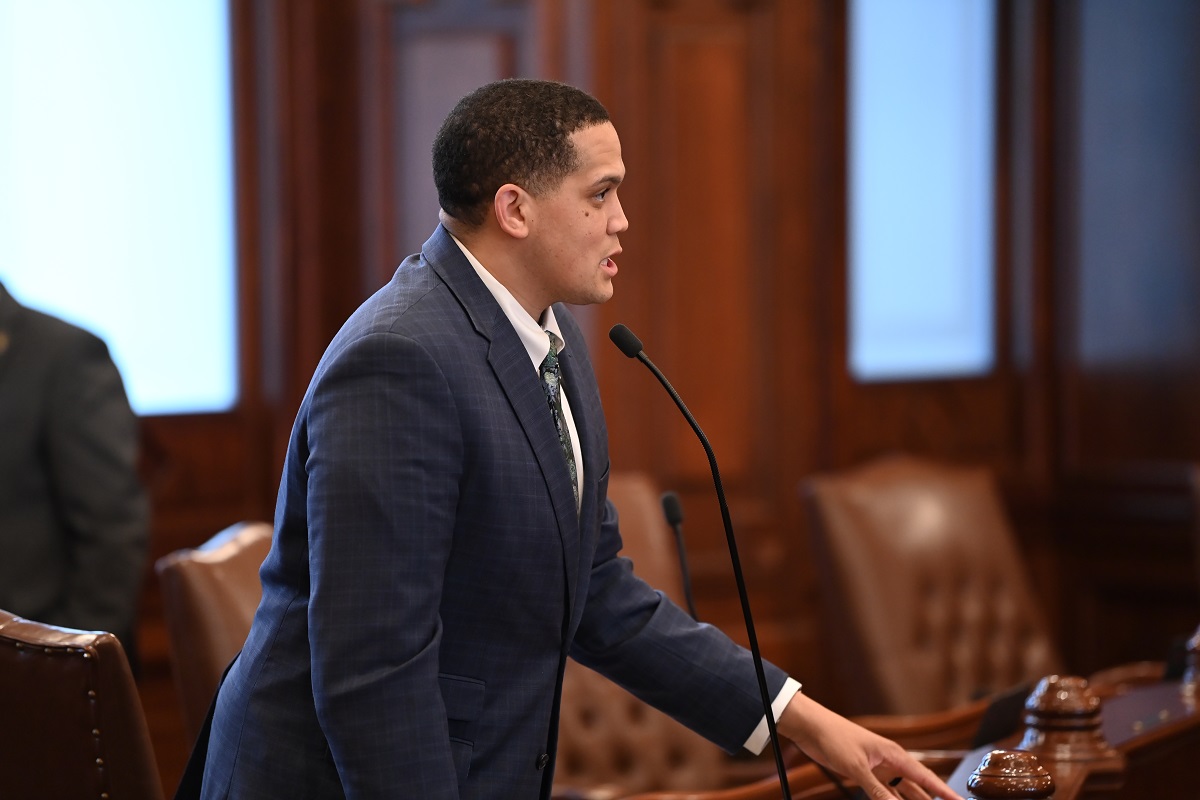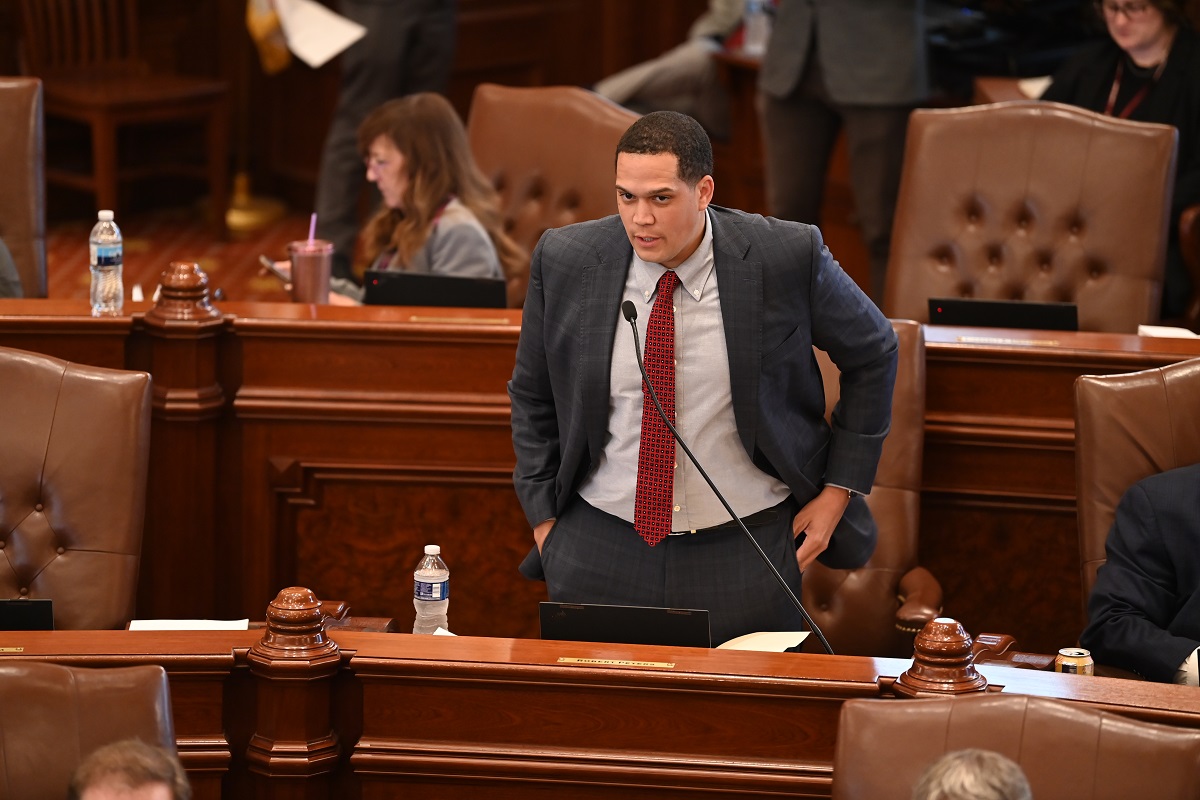Law led by Peters supports victims of abuse
- Details
- Category: Press Releases
 SPRINGFIELD — Illinois survivors of abuse and assault will now see a fairer justice system, thanks to a new law from State Senator Robert Peters.
SPRINGFIELD — Illinois survivors of abuse and assault will now see a fairer justice system, thanks to a new law from State Senator Robert Peters.
“Victims of abuse should never feel like they’re being silenced when they find the courage to tell their story – especially by the people who are explicitly meant to protect us,” said Peters (D-Chicago). “This law makes it clear our justice system will give victims the dignity, respect and support they deserve after enduring unimaginable trauma.”
Peters’ law defends victims of domestic abuse, reinforcing their right to be heard. Under the law, law enforcement are prohibited from discouraging or attempting to discourage a victim of abuse, neglect, exploitation or sexual assault from filing a police report – holding police accountable and allowing victims to seek justice without fear of being silenced.
Peters’ law shines light on violent crime investigations
- Details
- Category: Press Releases
 SPRINGFIELD — To improve public trust in law enforcement and tackle low homicide clearance rates, State Senator Robert Peters sponsored a new law requiring regular, transparent reporting on the progress of violent crime investigations.
SPRINGFIELD — To improve public trust in law enforcement and tackle low homicide clearance rates, State Senator Robert Peters sponsored a new law requiring regular, transparent reporting on the progress of violent crime investigations.
“Our residents deserve transparency in regard to how violent crimes are being handled,” said Peters (D-Chicago). “This law will empower communities with the information they need to demand accountability and justice.”
Under the law, the Illinois State Police will provide a report offering detailed data on homicides and aggravated assaults involving firearms to the Illinois Criminal Justice Information Authority by Sept. 1, 2026, and every four months after. These reports will track key metrics such as arrest numbers, cases referred for prosecution and the reasons why cases remain unsolved, providing a clearer understanding of the challenges faced by law enforcement.
Peters’ law ensures equal justice in public defense system
- Details
- Category: Press Releases
 SPRINGFIELD — State Senator Robert Peters led a new law creating the Office of the State Public Defender, an independent office under the state’s Judicial Branch – marking one of the most substantial reforms of Illinois’ public defense system since 1949.
SPRINGFIELD — State Senator Robert Peters led a new law creating the Office of the State Public Defender, an independent office under the state’s Judicial Branch – marking one of the most substantial reforms of Illinois’ public defense system since 1949.
“This law ensures we in Illinois are preserving residents’ constitutional right to counsel, regardless of their financial means, and contributing to a more just and equitable legal system,” said Peters (D-Chicago). “We have a duty to reduce disparities in our system – whether those are harsher sentences or wrongful convictions – and this law is a huge step in the right direction.”
A state public defender is a government-employed lawyer who provides legal representation to individuals accused or convicted of crimes who cannot afford to hire their own attorney. Public defender offices are one of three methods through which states and localities ensure defendants are granted the 6th and 14th Amendments right to counsel.
Peters to host U.K. Delegation on tour of innovation and community growth in Chicago’s South Side
- Details
- Category: Press Releases
 CHICAGO — In a showcase of international collaboration, State Senator Robert Peters will welcome U.K. Ambassador to the United States Peter Mandelson and British Consul General in Chicago Richard Hyde for a tour of Chicago’s South Side on Friday, Aug. 15.
CHICAGO — In a showcase of international collaboration, State Senator Robert Peters will welcome U.K. Ambassador to the United States Peter Mandelson and British Consul General in Chicago Richard Hyde for a tour of Chicago’s South Side on Friday, Aug. 15.
“Today’s visit is an opportunity to acknowledge the real impact international partnerships have on local communities,” said Peters (D-Chicago). “The South Side represents the kind of neighborhoods where investments in science education, small business and tourism create noticeable benefits for our residents.”
The visit highlights growing ties between Illinois and the United Kingdom across tourism, innovations in science and economic development in small business and education. It also shines a light on the Chicago South Side’s growing status not just as a center of modernization, but an attraction for global visitors. Tourism and small businesses play vital roles in the South Side’s local economy, creating jobs and displaying the cultural wealth of Chicago – from ethnic restaurants to family parks.
More Articles …
Page 5 of 95





